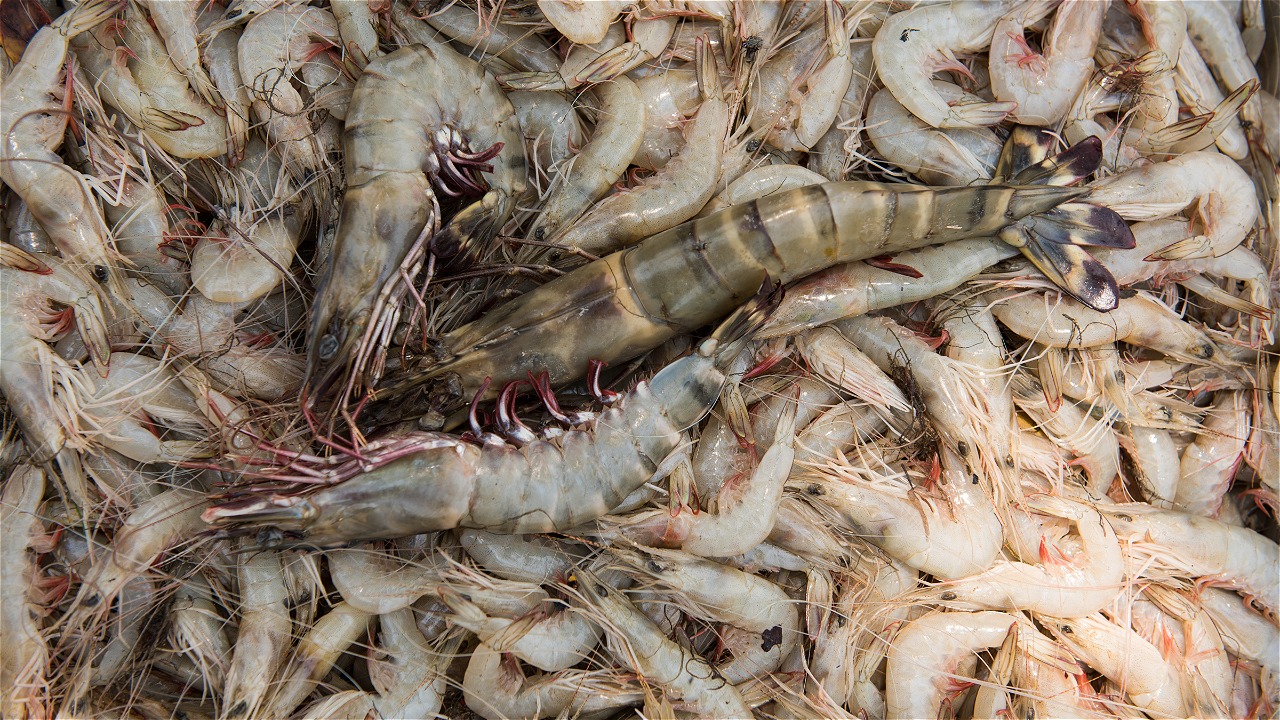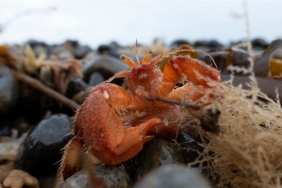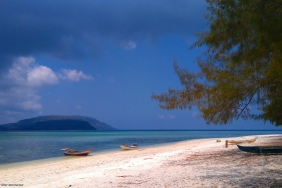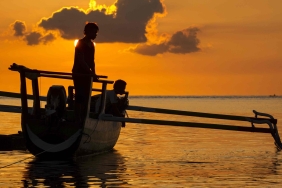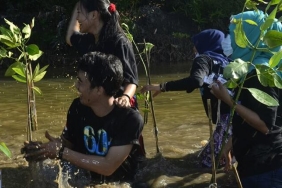WWF INDONESIA ORGANIZES “ON-BOARD OBSERVER” TRAINING TO REDUCE BY-CATCH
By Nina Samidi and Cendera Rizky
Jakarta (09/05)-Most fishing activities, particularly in the sea, there are some unintentionally caught species (by-catch) which are categorized as endangered species such as turtles, sharks, seabirds, and marine mammals (whales, dolphins). If they are not properly managed, those species will die and be thrown away. Consequently, this will disturb the balance of nature.
Therefore WWF Indonesia conducts training on ""On-Board Observer"" and the By-catch Prevention and Treatment for fishermen, boat crew, and captains. On-board observers or on-board researchers usually are the crew or fishermen who are under WWF”s coordination to conduct research on operating fishing boats. The focus now is on the longline tuna and the shrimp trawlfishermen.
WWF’s fishery team have previously given those researchers knowledge regarding by-catch prevention and handling.
Prevention can be done using environmentally friendly tool or method which is able to reduce by-catch. For example, for the longline tuna fishermen, they are encouraged to use circle hooks. This tool is as effective as the current longline hook used to catch tuna, but it won’t harm turtles and it is effective to catch tuna. Circle hook is designed to prevent hook from being swallowed by turtles.Meanwhile, for the shrimp trawl fishermen, BRD (Bycatch Reduction Device) and TED (Turtle Exclude Device), tools especially for shrimp trawls to filter and reduce by-catch.
These on-board observers, which has been developed since 2006 by WWF Indonesia are also responsible for recording data on fishery interaction and protected animals during the boats’ operationBased on theoe data, we can identify how many fishermen practicing environmentally friendly fishing and how many fishermen who have not been reached on the program.
On board, the observers or researchers also conduct training and transfer knowledge regarding by-catch prevention and handling for fishermen or boat crew. It aims at building capacity and knowledge among fishermen regarding by-catch. Through this training, they also introduce environmentally-friendly tools, for instance circle hook which has been WWF Indonesia’s focus in fishery work.
In addition to capacity building, guidelines for best management practices to protect by-catch has also been agreed on On January 2011, in Jakarta, WWF Indonesia invited the key stakeholders from Government, researchers and fishery groups to an Expert Group discussion. The main agenda was developing two types of BMPs (Better Management Practice or Best Management Guidelines), consisted of ""Guidelines for By-catch Prevention in longline tuna fishing "" and ""Guidelines for turtle by-catch handling in Longline Tuna and Shrimp Trawl Fishing"".
Those guidelines are expected to be easily implemented particularly for the fishermen, for they know how to prevent and handle by-catch. The newly-developed BMP is now being produced and distributed to be immediately considered as a guideline for fishing practices. In doing their research, the on-board observers will also refer to the document.

